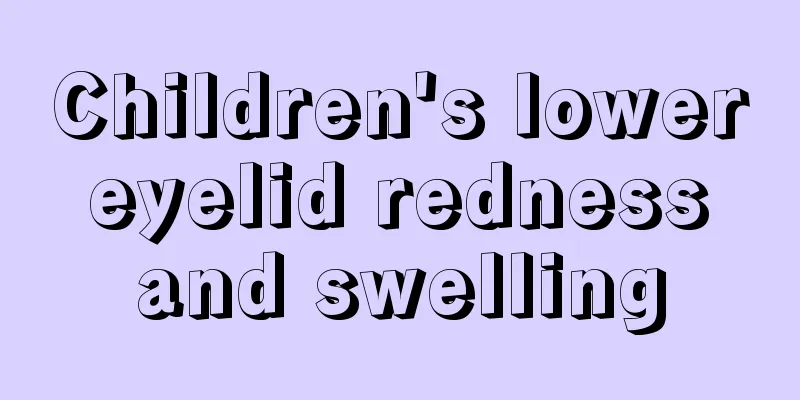Talk loudly in your newborn's ear

|
Many parents like to talk in their babies' ears. This is a sign of intimacy and a way to express love for their newborns. Sometimes it is inevitable to speak loudly in the ear of a newborn. Since the eardrum of a newborn is not well developed, it is very likely to damage the hearing of the newborn. Therefore, parents need to pay special attention to this. The following is a detailed introduction to whether it is okay to speak loudly in the ear of a newborn. Generally speaking, for babies, their eardrums are not well developed yet. So if you speak loudly in the child's ear, it may damage the eardrum and make the child crazy. When you talk normally, try not to shout loudly in the child's ear. 1. Behaviors that are harmful to children’s ears 1. The volume of the TV, stereo and other equipment at home is too loud, which can easily cause damage to children's ears. 2. If children grow up in an environment with a lot of noise and loud sounds for a long time, it will cause great harm to their ears. 3. If adults often help children clean their ears, or if children like to clean their ears by themselves, or even stuff things like paper scraps into their ears, it will cause damage to the ears. 4. If a child is naughty and his parents slap him, or if the child runs around and hits his ears, it will cause damage to the ears. 5. When a child is sick, parents pinch the child's nose to force medicine in, which is also harmful to the ears. 6. Feeding your baby while lying down can easily cause damage to his ears. 7. When children have a cold, parents like to pinch their noses to make them spray out the snot, or ask them to cover their mouths when they sneeze. This will directly cause more or less damage to the ears. 8. If you don’t pay attention before taking the medicine, some medicines may be harmful to children’s ears. 2. How to protect children's ears in daily life 1. In daily life, do not let children wear headphones, and the audio equipment at home should not be turned up too loudly. The volume should be controlled within a certain comfortable decibel range. 2. When parents talk to their children, don’t always shout. Speak softly and avoid yelling in children’s ears. 3. Don’t slap your children casually. Although this is a way of “education” for parents, it is not a good practice. 4. Don’t give your child medicine casually. Follow the doctor’s instructions when giving medicine to your child. This will better ensure your child’s health and safety. 5. Don’t clean your child’s ears randomly. If there is too much earwax and it is too large, it is best to have it cleaned by a professional otolaryngologist. Otherwise, accidents may occur due to improper operation. |
<<: Newborn baby rolling his eyes
>>: Newborn baby diarrhea with milk curds
Recommend
Is myocardial damage serious after a newborn cold?
Newborns will develop many adverse symptoms after...
What are the causes of eye inflammation in children?
Children suffer from eye inflammation more often ...
Is low white blood cell count in newborns serious?
If the newborn has low white blood cell count, pa...
What happens if a newborn baby doesn’t poop for three days?
Many newborns do not poop, some for as short as h...
Children with blood in stool
The chance of children having bloody stools is no...
What’s wrong with my child’s swollen neck?
Young children have relatively weak body resistan...
What are the early symptoms of cerebral palsy in premature infants?
Every family hopes that their child will have a h...
What to do if baby has light eyebrows
Eyebrows are an important part of our face. They ...
Causes and treatment of nosebleeds in children
It's the hot summer again. The hot and dry we...
Can people with hand, foot and mouth disease eat shrimp?
Patients with hand, foot and mouth disease should...
How to deal with heat rash in children?
With the arrival of spring and summer, many child...
What to do if your child has abnormal EEG?
The electroencephalogram can directly reflect the...
What to do if a 7-year-old child is constipated
Generally speaking, adults have the habit of cons...
Children's Nutrition Recipe
In modern society, children’s failure to eat well...
What to do if the baby has a nick in the heart
As we grow up, we will always encounter various d...









